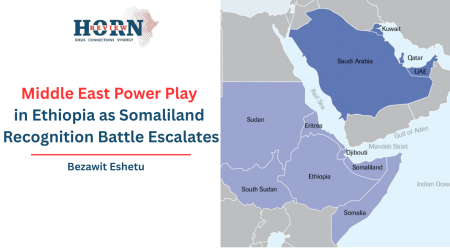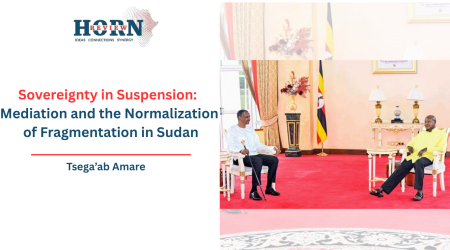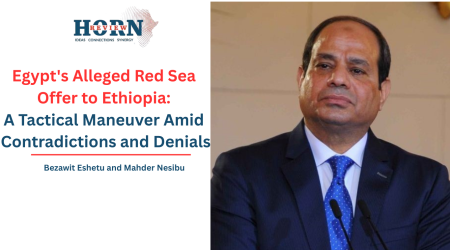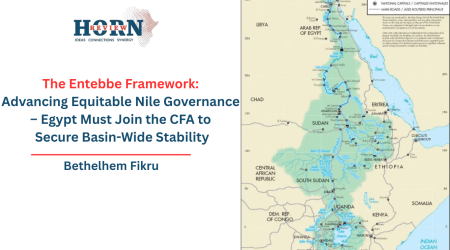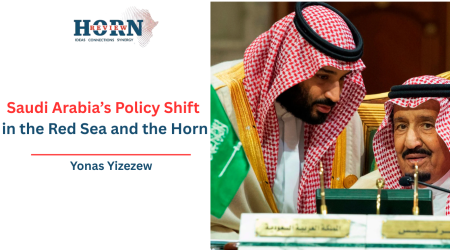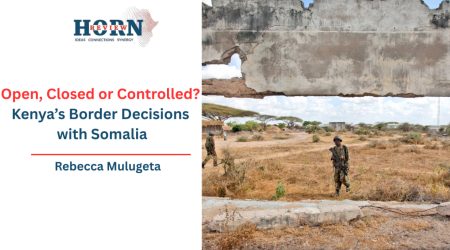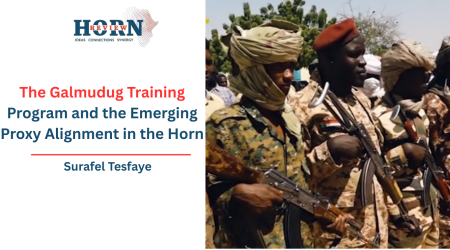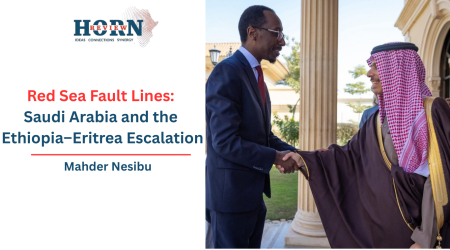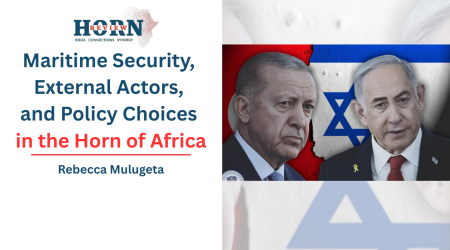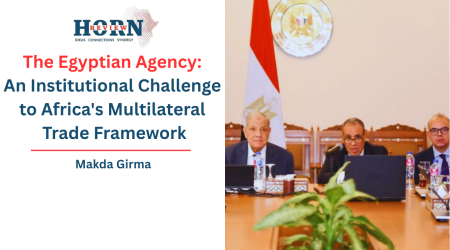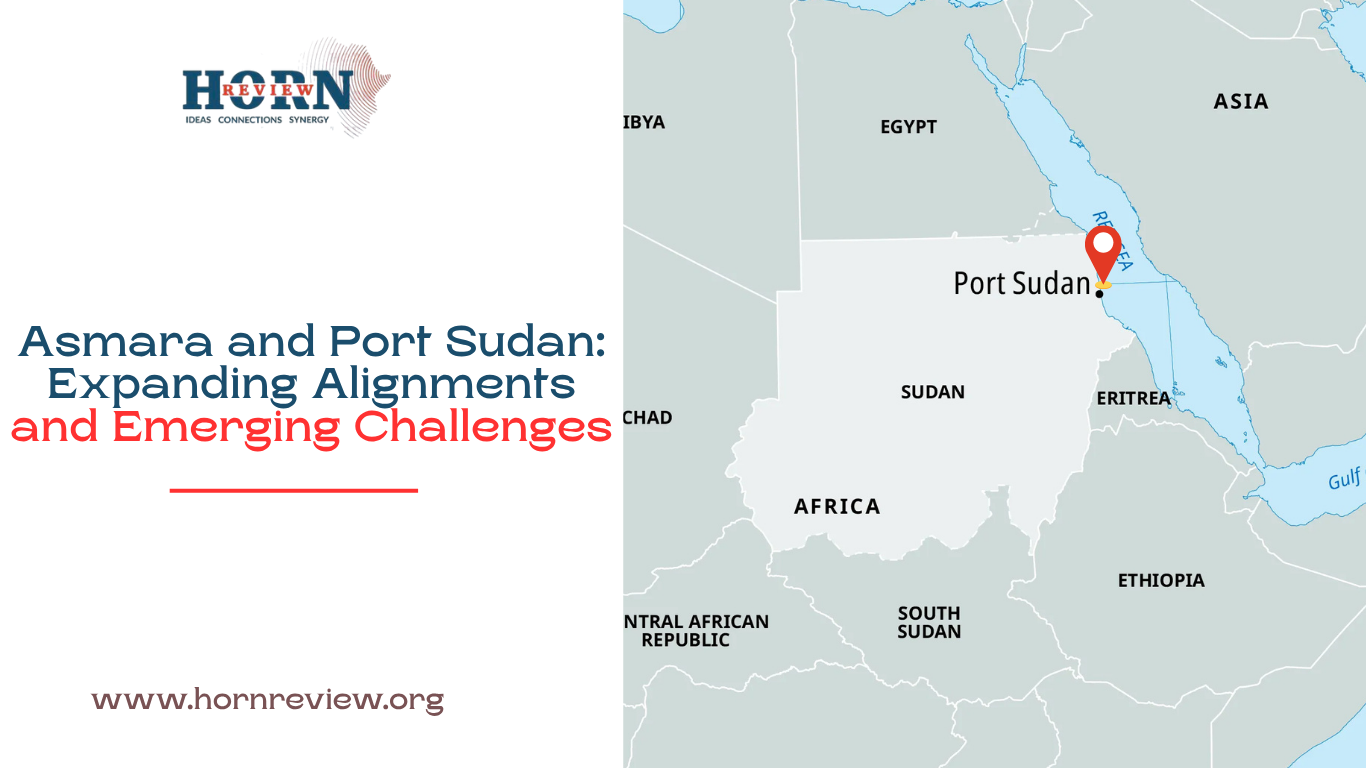
15
Oct
Asmara and Port Sudan: Expanding Alignments and Emerging Challenges
In a show of a steadily deepening partnership, Sudan’s newly appointed Prime Minister Kamal Idirs paid an extensive visit to Asmara, accompanied by senior officials and holding talks with President Isaias Afwerki, Foreign Minister Osman Saleh, and other Eritrean authorities. The meeting concluded with the signing of several agreements, highlighting the growing alignment between al-Burhan’s government in Port Sudan and the regime in Asmara. This relationship has evolved in tandem with the shifting dynamics of the Sudanese civil war and the unstable regional political landscape. For Asmara, this was an opportunity to reaffirm its commitment to the Sudan Armed Forces (SAF), and for Port Sudan, a chance to consolidate external backing amid a protracted and devastating conflict. Al-Burhan’s own visit to Asmara earlier this year, where he publicly thanked “the government and people of Eritrea” for their support against the Rapid Support Forces (RSF), had already signalled the direction of this partnership. The latest encounter, however, carries broader implications. It comes at a moment of heightened tension between Eritrea and Ethiopia, as Asmara pursues an increasingly assertive campaign across the border and appears intent on widening its network of influence to challenge Ethiopia’s internal security.
Eritrea’s engagement in Sudan raises difficult questions about the possibilities for peace. President Isaias Afwerki has emerged as one of the most active foreign figures in the war, providing training grounds and logistical support to the Sudanese Armed Forces. Reports indicate that Sudan has stationed military aircraft in Eritrea for safekeeping from drone attacks and that Asmara hosts camps for fighters aligned with al-Burhan’s command. Such developments position Eritrea as a significant external actor in a conflict already saturated with foreign involvement, and its role complicates the already narrow prospects for dialogue. Despite the efforts of regional and international stakeholders, including the Quad mechanism spearheaded by several states, including the U.S., peace efforts have yielded little progress. Both warring parties remain determined to pursue victory on the battlefield. Within this landscape, Eritrea’s continued readiness to back the SAF militarily reinforces a trajectory of deepening ties that favour confrontation over compromise.
The relationship between al-Burhan and Addis Ababa, in contrast, has deteriorated considerably over the past couple of years. Ethiopia’s declared neutrality in the Sudanese conflict and its refusal to lend political or material support to the Port Sudan government have frustrated the military leadership. This tension has been amplified by Ethiopia’s close relations with the United Arab Emirates, a key backer of the RSF. The perception in Port Sudan that Addis Ababa has tilted toward its adversary has opened space for Asmara to move closer to al-Burhan. For Eritrea, the shifting balance presented an opportunity to entrench its influence within Sudan’s military camp, thereby enhancing its leverage against Ethiopia. The Sudanese Armed Forces, already aligned with Egypt and various other regional players, view Asmara as a useful partner in this moment of uncertainty.
The deterioration in Sudan–Ethiopia relations, however, did not arise solely from the current war. Earlier disputes over the Grand Ethiopian Renaissance Dam and the Al-Fashaga border triangle have steadily eroded trust. Since 2020, Sudanese troops have maintained their occupation of Al-Fashaga, a strategic area within Ethiopian territory, and al-Burhan has shown little willingness to de-escalate. Against this backdrop, Asmara’s courtship of Port Sudan seems more than symbolic. It coincides with a campaign of proxy activity directed at Ethiopia, one that Addis Ababa has increasingly sought to expose at international forums.
In early October, Ethiopia addressed a formal letter to the United Nations Secretary-General, accusing Eritrea of orchestrating destabilizing activities through its coordination with the Tigray People’s Liberation Front in Mekelle and with elements of the Fano insurgency in the Amhara region. Separately, multiple reports suggest that the Fano insurgency, which has escalated attacks on government forces, is receiving support from Eritrea and its ally Egypt, with arms and supplies reportedly moving across the Sudanese frontier. The Amhara region, sharing a long and porous border with Sudan, provides a logistical channel that conveniently overlaps with areas under SAF control. These cross-border linkages may form part of what many observers describe as a deliberate proxy web designed to destabilize Ethiopia’s security landscape and prolong its internal unrest.
Eritrea’s actions thus extend beyond opportunistic diplomacy. The regime in Asmara, long accustomed to acting outside conventional regional frameworks, appears to be pursuing a strategy aimed at embroiling Ethiopia in renewed conflict. The growing military and political coordination with Sudan may contain a plan to expand the scope of instability within and around Ethiopia’s borders. For al-Burhan’s government, embroiled in an existential war, such continued military support is essential. The convergence of these interests, Asmara’s drive to foment confrontation, and Port Sudan’s need for reinforcement threatens to entrench patterns of militarization that could further destabilize the entire region.
As the relationship between the two deepens, the strategic implications for Ethiopia become increasingly complex. Eritrea’s activities along its northern and western frontiers intersect with Sudan’s military presence in Al-Fashaga, producing overlapping zones of insecurity. The possibility that Sudan’s armed forces could be drawn into Eritrea’s anti-Ethiopian agenda would represent a dangerous escalation, widening the scope of instability across an already volatile region. While Ethiopia has sought to remain neutral in Sudan’s civil war, neutrality alone may no longer suffice to safeguard its national interests. A more deliberate diplomatic effort is needed to re-engage Port Sudan, reduce mistrust, and prevent the consolidation of an axis that could undermine Ethiopia’s post-conflict recovery.

